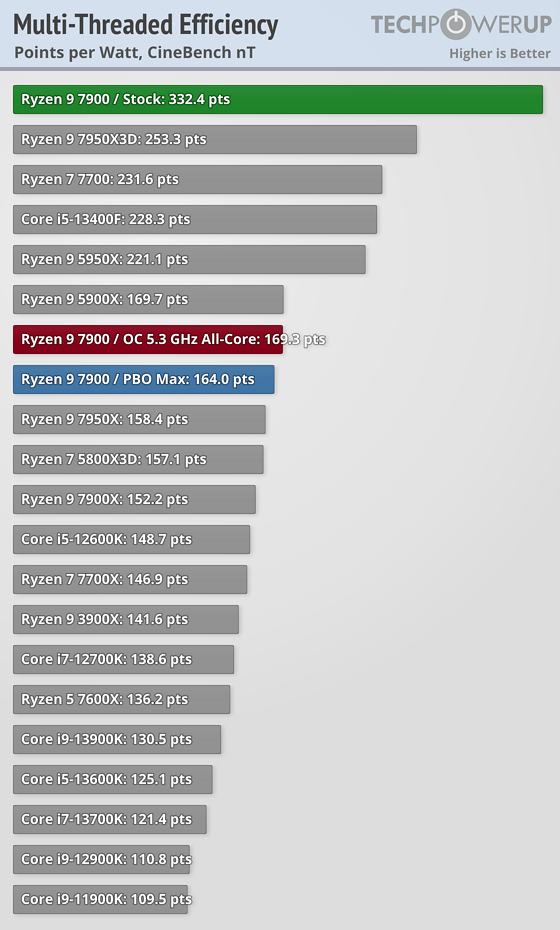First of all, we were talking about ST efficiency (You literally brought it up). Now that the 3d is getting absolutely destroyed on it, you changed it to gaming. What in the world?
I'm not the one who broadened the scope, but I've said all I have to say about that specific CPU matchup.
And why all of a sudden do you care about how a product is marketed?
That's relevant to how people use it. If you take a gaming-oriented CPU and show it's not great at rendering, that doesn't make it a bad CPU overall. It just means you shouldn't buy it if your main concern is rendering performance.
The R7 7700x is marketed as an i7 13700k competitor,
No, that's different (assuming it were even true). I was talking about the selling point of a specific model, and now you're trying to gin up a theory to legitimize you wacky product matchups.
hence the name (and the price), but you were adamant about me not comparing them against one another.......
Wow, so you remember at least
some of what I said! That's progress, I suppose.
Okay, so the parts you left out were:
- AMD's numbering scheme is tied to the amount of cores they have, among other things. Ryzen 7000 is now AMD's 3rd generation of desktop products to use the same scheme, so don't pretend it's something new they just came up with.
- In general product numbering schemes are relevant for comparing products from the same manufacturer between different generations. You can't simultaneously have inter-generational naming consistency and use the names to try and align with competing products.
- It's also incredibly tricky to pre-align your products with your competitors, before either have launched, because you have no final performance data on either. That makes the whole notion they even attempted this that much more far-fetched.
- MSRP is similarly problematic as the point above, because you're merely taking a guess about how performance is going to match up. MSRP is set well in advance of product launches, so final specs & performance data isn't available.
I think that about covers it. So, basically
the main factors that should be used to establish product matchups are: (current) price, performance, and power.
It is way faster in ST performance, which is EXACTLY what we were talking about. You are again changing the subject.
If I'm talking about ST performance & efficiency of one CPU, and then you decide to use it as a basis for establishing another product matchup, that's not
me changing the subject.
Good job, posting MT data really refuted my point that Intel has a huge lead in ST efficiency.
You didn't say "ST efficiency". You just made another of your sweeping claims.
"And as we move further up the stack the difference start becoming HUGE. The 13700k is way faster than the 7900x while being way more efficient than both the 7900x and the7900."
If your wording is sloppy, that's
your problem not mine. Maybe take more time to compose and proof-read your posts, instead of always being so quick to reply. A
good reply is worth a lot more than a quick one.
But it doesn't have good ST efficiency, what are you talking about? The 400f still have a 37% lead man.....
You used efficiency data from one model and performance from another,
in the same claim.
That's a no no. The i5-13400F beats the R7 7700 on ST efficiency, but not ST performance.
Both must be taken into account.
"... idle and light load power draw isn't (fixable, it's inherent to multi die cpus."
So, that's the point I was attempting (successfully, I might add) in refuting.
The majority of Intel cpus have better ST efficiency
But, if I can cite an example of a chiplet-based CPU with good efficiency, then perhaps it's not chiplets that are the main reason.


















